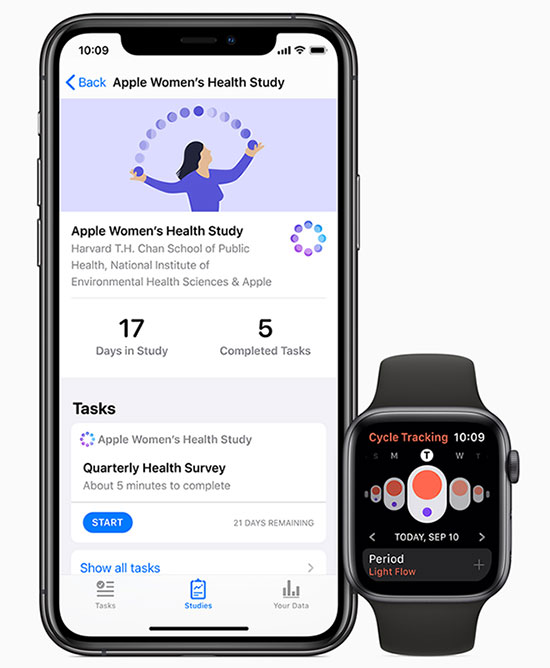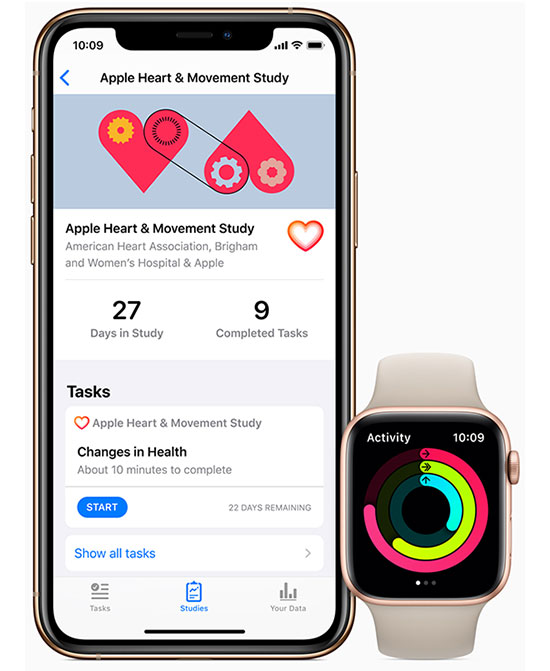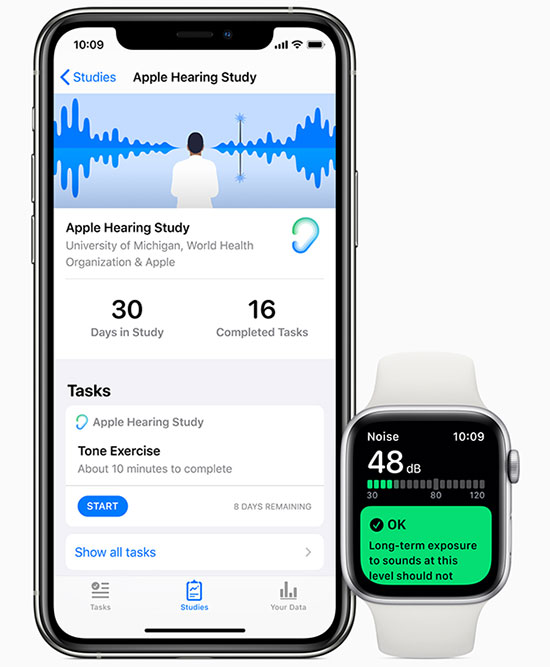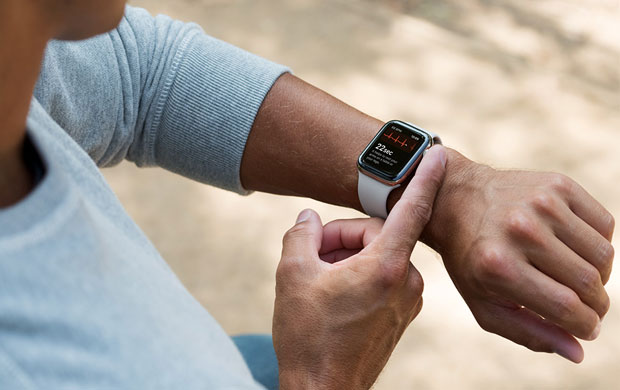Apple is getting into the medical research field with its recent announcement of three studies to be conducted through its Research app.
Apple Watch and iPhone users in the United States can use the app to enroll in the Apple Women’s Health Study, the Apple Heart & Movement Study, and the Apple Hearing Study.
Participants can use their Apple devices to contribute movement, heart rate and noise level data to the studies — and they can do it through everyday activities like walking or attending a concert.
They will “have the opportunity to make a tremendous impact that could lead to new discoveries and help millions lead healthier lives,” Apple COO Jeff Williams said last week.
Medical researchers can benefit from Apple’s ability to round up thousands of subjects for these studies through its broad customer base, noted Tim Bajarin, president of Creative Strategies, a technology advisory firm in Campbell, California.
Apple also benefits from the studies, he noted.
“It shows their customers they are very much concerned about health and are creating products, apps and services with this in mind,” Bajarin told TechNewsWorld.
“It also makes Apple a great conduit for the medical community and reinforces Apple’s overall commitment to the health and welfare of their users,” he said.
Menstrual and Heart Studies
The Apple Women’s Health Study will focus on how menstrual cycles relate to women’s health. It will look into relationships between the cycles and health conditions such as polycystic ovary syndrome, infertility, osteoporosis and menopausal transition.

Apple is working with the Harvard T.H. Chan School of Public Health and the National Institutes of Health’s National Institute of Environmental Health Sciences on the study.
Participants will be able to use their iPhone and Apple Watch to collect data, such as cycle tracking information. Monthly surveys will help shed light each participant’s unique menstrual experience.
With the Apple Heart & Movement study, Apple and researchers from Brigham and Women’s Hospital in Boston and the American Heart Association are looking for insights into how the quality and quantity of a person’s movements can affect their current and future health status.

Certain mobility signals and details about heart rate and rhythm can serve as potential early warning signs of atrial fibrillation, heart disease or declining mobility, Apple explained. Those signs may lead to interventions to help consumers enjoy longer, healthier lives.
Apple already has benefited from past research on atrial fibrillation, which can lead to a stroke and hospitalization. A 2017-2018 study with Stanford University researchers and 400,000 Apple Watch users led to the addition of the “irregular rhythm” notification on the watch, a means of early detection of the condition.
Can You Hear Me Now?
Through the Apple Hearing Study, Apple and University of Michigan researchers hope to gain some insights into the impact of sound exposure on hearing health and stress levels over time.

Headphone usage and environmental sound exposure data will be gathered through the iPhone and the Noise app on the Apple Watch.
Participants will be assigned randomly to one of two groups. Researchers aim to find out if receiving notifications when loud sound exposure is detected can motivate people to modify their listening behaviors.
Hearing loss studies typically focus on environmental noise — the noise around a person. The Apple study will measure that kind of noise, but it also will consider the effects of sound delivered to a person through headphones.
In addition, sound locations can be tracked in the study. Typically, sound studies are confined to a single location — for example, work. The Apple study will be able to look at multiple locations and determine where a person is being exposed to unhealthy levels of noise. Do they have a job that poses risks to their hearing? Do they have a loud hobby? Do they listen to loud music?
Data from the study will be shared with the World Health Organization’s Make Listening Safe initiative, a program to raise awareness of safe listening practices and reduce hearing loss.
A New Kind of Clinical Trial
Conducting large-scale health studies can be very challenging.
“The existing healthcare study system is expensive, bureaucratic, and has a lot hurdles to jump through,” said Jeff Dachis, CEO of Informed Data Systems, the New York City-based maker of One Drop, a diabetes management app.
Contrast that with what Apple is doing, he suggested. Apple can use its installed base of users to enroll hundreds of thousands of people in a study in a few short weeks.
“The healthcare industry moves slowly and is ineffective. Apple is super fast, really efficient and really effective. Apple is changing the idea of what a clinical trial is in terms of speed, cost and efficiency,” Dachis told TechNewsWorld.
“When I saw how many people they enrolled in the study and the clinical validity of the information they were collecting, it was super exciting to think about a world where clinical studies get done a lot faster,” he said.
Although great rigor is taken to ensure the quality of data collected in conventional clinical studies, biases slip in from time to time, Dachis acknowledged, but that isn’t likely to affect the data collected by Apple.
“Apple’s studies are broad enough and big enough that I wouldn’t have any questions about the data,” he said.
Committed to Privacy
When announcing the studies, Apple reiterated its commitment to privacy and noted that the Research app shares data with a study only when a user approves it.
The app includes a clear enrollment flow with detailed consent that explains how data will be used, and it allows a user to control the data shared with each study.
What’s more, any data collected through the app is encrypted if a passcode is set on a device.
Once shared, it is stored securely in a system within Apple, designed to meet the technical safeguard requirements of the federal Health Insurance Portability and Accountability Act. Apple will not have access to any contact information or other identifying data that a user provides it through the Research app.
In addition, users can withdraw from any study at any time, ending any future data collection.
“There should always be concerns about privacy with studies like this. You have to have informed consent,” Dachis said, “but I think Apple is a trustworthy steward of data and will use it properly. Personally, I wouldn’t have any concerns about my data privacy with a study that Apple was an active participant in.”
























































Really a great idea! This is going to help people track their health issues. And will definitely help us to improve our health. As we are able to track our health details on our fingertips, we will take more concern towards our health to stay fit.